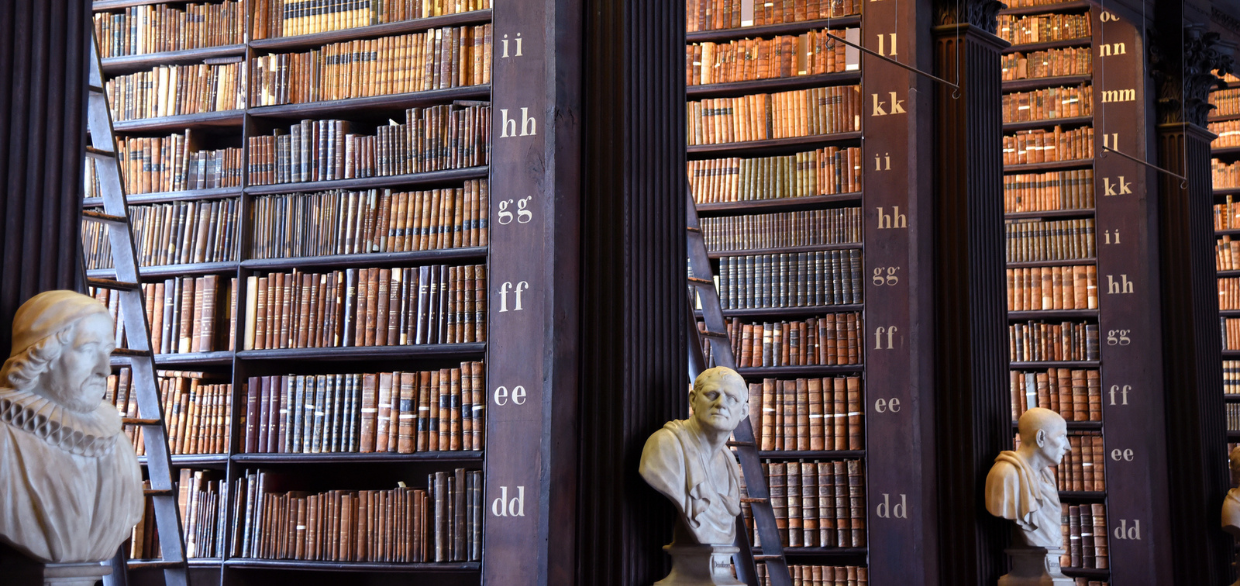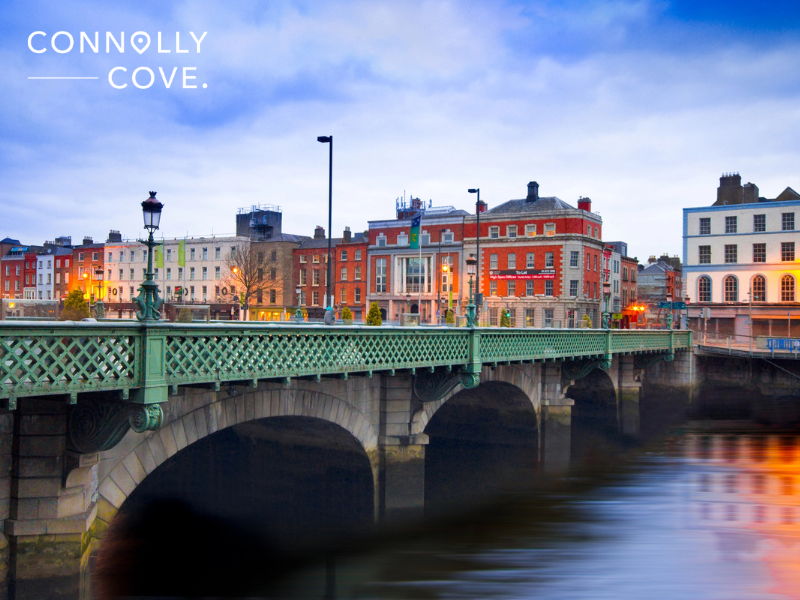Brendan Behan: Exploring the Life and Works of Ireland’s Legendary Writer

Updated On: April 13, 2024 by Maha Yassin
In the vibrant tapestry of Irish literature, few threads shimmer with the rebellious spirit and raw talent of Brendan Behan. A playwright, poet, novelist, and all-around raconteur, Behan’s life was a captivating paradox. He was a firebrand activist for Irish independence, his youthful zeal landing him in prison walls that would ironically birth his literary awakening. But Behan’s brilliance transcended mere political fervour. Armed with a wit as sharp as a Dublin pub knife and an uncanny ability to capture the soul of the working class, he spun tales that resonated with audiences far beyond the Emerald Isle.
This exploration of Behan’s remarkable journey delves into the formative years that shaped his fiery spirit, the crucible of imprisonment that ignited his creativity, and the international acclaim cemented his place as a literary giant. We will navigate a life marked by both struggle and triumph; a man forever inked in rebellion yet finding his voice through the power of words.
Brendan Behan: Seeds of Rebellion and the Spark of Creativity
Brendan Behan’s formative years were a crucible that shaped both the man and the artist. Born into a working-class Dublin steeped in revolutionary fervour, his life became a constant dance between youthful idealism and the harsh realities of political conflict. This section delves into Behan’s early experiences, exploring how his upbringing fueled his rebellious spirit, how his brush with the law ignited a passion for language, and how his continued involvement with the IRA catalysed his burgeoning creativity.
A Dublin Upbringing Steeped in Rebellion
Brendan Behan’s story begins not on a stage bathed in applause but amidst the cobbled streets and close-knit community of Dublin’s working class. Born in 1923, Behan’s childhood was a tapestry woven with the threads of poverty and a simmering political tension. His father, Frank Behan, a former volunteer in the Irish Republican Army (IRA), instilled in him a deep love for the Irish language, Gaeilge (GAY-lick), and a genuine desire for Irish independence. This rebellious spirit manifested early, with Behan joining the Fianna Éireann, a youth wing of the IRA, in his early teens. The Fianna Éireann provided a training ground for future IRA recruits, fostering a sense of camaraderie and a commitment to the fight for Irish freedom.
A Brush with the Law: Incarceration and the Power of Language
However, Behan’s youthful idealism soon clashed with the harsh realities of political conflict. In 1939, at the tender age of sixteen, he was arrested for carrying explosives across the border into Northern Ireland. This act of defiance, fueled by his burgeoning nationalism, landed him in Borstal, a juvenile detention centre in England, for three years. Here, amidst the harsh routines and strict discipline, Brendan Behan’s love for the Irish language proved to be a lifeline. He devoured Gaelic literature, its rich history and rebellious spirit, providing solace and a connection to his heritage.
With its tales of ancient heroes and a defiant spirit, Gaelic literature resonated deeply with Behan. He saw parallels between the struggles of the mythical figures and the contemporary fight for Irish independence. This immersion in his cultural heritage ignited his passion for language and storytelling. Behan began to translate poems and stories into English, honing his literary skills in the process.
A Revolving Door: Release and Re-engagement with the IRA
Upon his release in 1942, Brendan Behan, his youthful idealism undimmed, rejoined the IRA. The taste of freedom only strengthened his thirst for action. He yearned to play a more active role in the fight for Irish independence. This decision would lead him down a tumultuous path, with further arrests and imprisonments becoming a recurring theme in his young life. Yet, within the confines of these institutions, a different kind of awakening was taking place. Surrounded by a menagerie of characters forged by hardship, Behan began to hone his storytelling abilities. He observed the quirks and eccentricities of his fellow inmates, absorbing their vibrant language and experiences. His sharp wit found expression in crafting biting observations and scathing critiques of authority. These experiences would become the raw material for his future literary creations, a testament to the resilience of the human spirit and the power of art to bloom even in the most unlikely places.

Incarceration and Literary Awakening: Forging a Voice Behind Bars
Brendan Behan’s time spent in various prisons and detention centres wasn’t just a period of hardship; it became a surprising catalyst for his literary awakening. Confined within the harsh realities of incarceration, Behan discovered a wellspring of creativity that would propel him to become a significant voice in Irish literature.
Confessions of an Irish Rebel
Behan’s first significant incarceration at Borstal marked the beginning of a life marked by both confinement and creation. Surrounded by fellow Irish political prisoners and a motley crew of other inmates, Behan began documenting his experiences. He meticulously crafted notes and observations, capturing the camaraderie, the humour, and the despair that permeated life behind bars. These notes would later form the basis for his most famous work, “Confessions of an Irish Rebel.”
Published in 1964, “Confessions” is a semi-autobiographical account of Behan’s life, focusing on his time in prison. It defies easy categorisation, blending memoir, political commentary, and social satire. Behan’s sharp wit and keen eye for detail shine through, offering readers a vivid and often hilarious glimpse into the world of Irish political prisoners.
A Refuge in Words: Language as a Weapon and a Solace
While the physical confines of prison restricted Behan’s freedom, it couldn’t stifle his creativity. He found solace and a sense of power in language. He devoured the works of Irish literary giants like James Joyce and Sean O’Casey, and their lyrical prose and bold social commentary left a lasting impact. Behan started experimenting with writing himself, translating Gaelic poems and stories, and crafting his witty observations about prison life. This language immersion provided an escape from his circumstances and honed his storytelling abilities. Behan’s love for the Irish language, nurtured during his first imprisonment, was a source of strength and inspiration.
From Inmate to Storyteller: The Birth of a Literary Voice
Brendan Behan developed a keen eye for human behaviour by observing the characters around him. The prison walls became a stage, and his fellow inmates a cast of colourful characters. He observed their quirks and eccentricities, their resilience in the face of adversity, and their shared desire for freedom. Behan’s sharp wit found expression in crafting biting observations and scathing critiques of authority. He began to weave these observations into stories, developing the voice that would later captivate audiences across the globe.
The crucible of incarceration became the breeding ground for Behan’s literary awakening with its harsh realities and unexpected opportunities. He emerged from prison as a hardened political activist and a budding writer with a unique perspective and a powerful voice.
Between Bars and Breaking Free
Brendan Behan’s life was a captivating dance between confinement and artistic expression. Released from prison in 1946, he was caught between the lingering allure of revolutionary action and the burgeoning promise of a literary career.
Re-engagement with the IRA and the Price of Rebellion
Despite the hardships endured during his incarceration, Brendan Behan’s commitment to the IRA remained strong. He rejoined the organisation, his revolutionary spirit undimmed. However, his involvement soon landed him back in trouble. In 1948, he was arrested for carrying an unauthorised firearm and sentenced to fourteen years of hard labour.
This harsh sentence proved to be a turning point. The prospect of spending his best years behind bars forced Behan to confront a crucial choice: continue down the path of violent rebellion or pursue his newfound passion for writing.
“The Quare Fellow” and the Glimmer of Recognition
While incarcerated in Dublin’s Mountjoy Prison, Behan channelled his experiences and observations into his first play, “The Quare Fellow.” The play, a darkly comic and poignant portrayal of life inside a Dublin prison, became an instant success upon its premiere in 1954. Its raw authenticity and Behan’s signature wit resonated with audiences, offering a glimpse into a world rarely explored on stage.
The success of “The Quare Fellow” marked a significant shift in Behan’s life. He began to see writing as a potential pathway to freedom, both literal and artistic.
Struggles with Alcoholism and the Cycle of Imprisonment
Despite the newfound acclaim, Brendan Behan’s life remained a turbulent journey. His struggles with alcoholism continued to cast a dark cloud, leading to further arrests and jail time. This cycle of success and relapse became a hallmark of his later years.
However, Behan’s creative output remained impressive even during these tumultuous times. He wrote prolifically, producing plays, novels, and essays that cemented his reputation as a significant voice in Irish literature.
Behan’s story during this period exemplifies the complex relationship between confinement and artistic expression. Though his freedom remained elusive, his writing offered a sense of liberation for himself and his audience, giving them a voice for their struggles and a window into the heart of the Irish experience.
Literary Recognition and International Acclaim

Brendan Behan’s life, a whirlwind of political fervour and artistic brilliance, transcended the confines of Ireland. With the success of “The Quare Fellow” propelling him onto the international stage, Behan embarked on a new chapter marked by literary recognition and personal challenges.
A Parisian Interlude: New Horizons and the Power of the Radio
In 1956, seeking a fresh start and a distance from the temptations of Dublin, Behan relocated to Paris. This vibrant city, a haven for artists and intellectuals, offered him a stimulating environment and a chance to connect with a broader literary community. Here, Behan honed his craft further, writing for Irish radio and exploring new forms of storytelling.
His radio plays, delivered in his rich Dublin brogue, captivated audiences across Ireland. Behan’s ability to weave humour and pathos, his sharp social commentary, and his deep connection to the working class resonated with listeners, solidifying his position as a national treasure.
“Borstal Boy”: A Semi-Autobiographical Masterpiece
Behan’s most celebrated work, “Borstal Boy,” was published in 1958. This semi-autobiographical novel chronicled his experiences at Borstal, offering a more nuanced and introspective look at his formative years. The book was a critical and commercial success, establishing Behan as a significant literary voice on the global stage.
However, success comes with a price. Behan’s rebellious nature and outspoken personality often clashed with authority figures and literary critics, making him controversial. At times, his struggles overshadowed his artistic achievements.
A Magnetic Stage Presence: Behan the Performer and the Enduring Allure
Beyond his writing, Brendan Behan captivated audiences with his electrifying stage presence. He toured extensively, reading his works with infectious enthusiasm and sharp wit that entertained and challenged audiences. His performances became legendary, blurring the lines between storytelling and social commentary.
Behan’s impact on the international literary scene was undeniable despite his tumultuous personal life. He became a symbol of Irish rebellion and artistic expression, offering a unique voice that resonated with audiences far beyond his homeland.
A Complex Legacy: Rebellious Spirit, Enduring Voice
Brendan Behan’s legacy remains a fascinating and multifaceted tapestry. He was a figure of immense talent and unwavering commitment, yet also one marked by personal struggles and political controversy.
A Lasting Influence on Irish Literature
Behan’s impact on Irish literature is undeniable. He broke new ground with his raw and authentic portrayal of working-class life, offering a voice to those often marginalised by mainstream society. His works, filled with humour and a sharp social conscience, challenged societal norms and ignited conversations about Irish identity. He inspired a generation of writers to explore these themes honestly and boldly.
The Controversy and the Celebration
However, Brendan Behan’s legacy is not without its complexities. His unwavering political convictions, coupled with his battles with alcoholism, often overshadowed his artistic achievements. His involvement with the IRA led to accusations of glorifying violence, while his outspoken nature created friction with both politicians and literary critics.
Despite these controversies, Behan’s commitment to artistic freedom and unique storytelling ability remain celebrated. His work resonates with readers and audiences for its honesty, humour, and profound humanity.
A Life Etched in Rebellion, Voiced in Wit
Brendan Behan’s life was a captivating paradox—a passionate rebel forever tethered to the written word. He was a master storyteller, his voice a potent blend of wit, social criticism, and a deep love for his homeland. While his legacy may be complex, his artistic contribution remains undeniable. He stands as a testament to the enduring power of words to challenge, entertain, and leave an indelible mark on the world.
A Rebel’s Roar, a Writer’s Legacy
Brendan Behan’s life was a turbulent symphony, a whirlwind of political enthusiasm, artistic brilliance, and personal demons. He defied easy categorisation, forever oscillating between the barbed wire of rebellion and the liberating power of the written word. Behan’s legacy isn’t a neatly framed portrait but a vibrant mural splashed with the colours of controversy, humour, and profound humanity. He gave voice to the working class, challenged societal norms, and left an indelible mark on Irish literature.
Though his struggles often stole the spotlight, Brendan Behan’s artistic achievements remain a beacon. His stories continue to resonate, reminding us of the resilience of the human spirit and the transformative power of storytelling. Brendan Behan, the firebrand and the raconteur, remains an enigma, a man forever etched in rebellion yet finding his voice through the magic of words.






